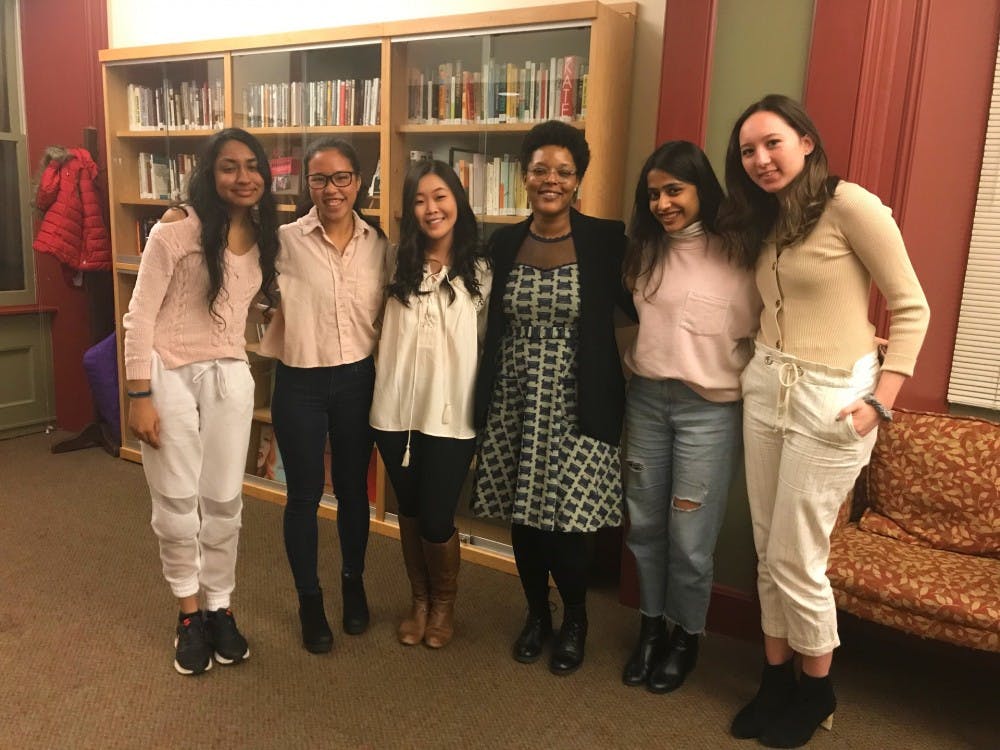Women's Week has come and gone—yet its impact at Penn remains persistent. Beyond the flurry of events on campus which have heralded its passing, there has also been emphasis on the inclusion of intersectional identities. "The most important thing as a board was to make sure that in celebrating women and marginalized gender identities, not just focusing on stereotypical girl power message that comes through in feminism and in women dominated spaces," shares Jenna Liu (C’20), the Director of Women’s Week. She continues, "we wanted to make sure that we were diving deeper into these issues and amplifying the voices of marginalized women, trans women, women of color, women who do not always get the space and resources to share their stories and their experiences, that is what is important.”
Penn’s Women’s Week heightened their theme of “Voice and Validity” above and beyond my expectations. The Women’s Week team created opportunities to learn about Grassroots Organizing in the Era of #MeToo, to view student’s artwork, and to attend various workshops, thus promoting exciting conversations around gender, identity, and community.

Courtesy of Women's Week Board.
The closing event was “Speak Your Truth—An Evening with Yolanda Wisher.” Wisher is a 2016 Philadelphia Poet Laureate, Director of Art Education for Philadelphia Mural Arts, and the founder as well as director of the Germantown Poetry and Outbound Poetry Festivals. In addition, Wisher was the 2017–2018 CPCW Fellow in Poetics and Poetic Practice at the University of Pennsylvania. Currently, she is the Curator of Spoken Word at Philadelphia Contemporary Art Museum.
Wisher celebrates the importance of female friendship during the event by detailing the many moments and places in which she has discovered such bonds between women in Philadelphia. She excitedly shares stories from her poetry groups, which are populated with both brilliant and creative minds.
Particularly, she shares her experiences teaching poetry to incarcerated women in an all–women’s prison in Philadelphia, an activity that she notes fosters a "Sisterhood of Second Chances." When entering the prison, she must follow rigid guidelines and provide her lesson plans and poems ahead of time. Her typical routine usually begins by her asking her students to write a list poem. One time, however, as the students began to read their pieces, she observed that two of the women featured several of the same names throughout their poems. The two shared that they were mother and daughter. With gusto and bravery, Wisher spontaneously opted to go off the pre–approved script, and asked the mother and daughter to combine their poems. Together, they turned the poems into a heart–warming duet, one fittingly called "Together We Got This."
Wisher's anecdote tied together a plethora of the weeks' themes—encouraging voices that have historically been silenced, validating those experiences and the raw emotions undergirding them, as well as appreciating camaraderie. Before the event, Liu had shared with me that, “the Voice and Validity theme is to ensure that every voice gets the compassion and respect it deserves, especially when that compassion and respect hasn’t always been available to them.”
“Words are so moving,” Liu states, “especially in this time we are in now, when it’s so important to make your voice heard, poetry and literature are so instrumental to political activism and the empowerment of women, specifically women of color.” With a bravery and focus apparent from the moment you meet her, she concludes, “The whole theme is about reclaiming space, sharing identities and your own narratives, and making sure that your voice is heard and validated.”







